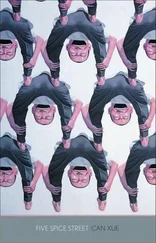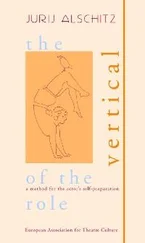Mr. Yuanpu had really declined. When Jinglan entered that rundown home and the maid Yunma opened Yuanpu’s bedroom door, he was sitting on a chamber pot, taking a crap, and thinking. Maybe he was merely pretending to think and actually was dozing. Looking closely at him, Jinglan confirmed this from his drooling. Since he’d last seen him, his color had grown much grayer. He seemed a little embarrassed, for he immediately wiped his ass, pulled up his pants, and stood up. The smell of shit filled the room at once. When he rapped on the table, Yunma came in and carried the chamber pot out, closing the door behind her and leaving the smell shut up inside. After he and Jinglan looked at each other in speechless despair, Yuanpu staggered toward the big bed, straightened the rumpled bedding, and then lay down and carefully covered his legs. From the way the bed looked, Jinglan knew that he had spent another sleepless night.
“Have you had breakfast?” Jinglan asked with concern.
“Sure I have. Otherwise, how would I be able to defecate?” He was mocking himself. There were thick mats on Yuanpu’s bed. Jinglan estimated that there were five or six of them, each with cotton batting weighing about ten pounds. Yuanpu had three extremely large pillows. At the moment two pillows were behind his decrepit back, and the other leaned against the side of the bed next to the wall. Yuanpu was half-lying on this large pile of cotton batting, but his face was telegraphing agony, as though the soft cotton batting were rubbing and hurting his body. This old home was much higher than ordinary houses. Many years ago, when Jinglan was a child, there had once been a large window in the wall. A bamboo shade had hung from it. Now only a cursorily whitewashed windowpane remained. Yuanpu had taken this action because in recent years he had found windows increasingly repellant. There were no chairs in the room, so Jinglan sat on the night table at the head of the bed. When he had visited the year before, Yuanpu had told him to sit there. When Jinglan considered his friendship with Yuanpu, he couldn’t help feeling proud of himself. But in recent years, Yuanpu’s decrepitude made him a little uneasy. Yuanpu’s sitting on the chamber pot was especially disgusting. Yuanpu had always been a sanitary person. You could even say he was fastidious. It hadn’t occurred to Jinglan that he could change so much. He certainly wasn’t so ill that he had to stay in bed. He was perfectly capable of getting up and going to the bathroom next door, but for the last six months, he had always asked Yunma to bring a chamber pot to his room. The stench was so bad that even Yunma held her nose when she entered and left the room. Jinglan thought, When all is said and done, there comes a day when people go downhill ; even a sagacious thinker like his mentor would not be able to avoid declining day after day. Who could defy the laws of nature? In the past, Yuanpu had suffered only from insomnia, but ten years ago, this hadn’t troubled him at all. Time after time, he and Jinglan had argued all night long in this room, and in the daytime, he was in his usual good spirits. When Jinglan tried to imagine what Yuanpu would look like in two or three years, he smiled sadly.
“Your color is really bad. You ought to exercise more in the courtyard. Exercise would give you a better appetite.” Jinglan couldn’t help saying this, but he soon wished he hadn’t. Yuanpu leaned back on his pillow and listened attentively, but he wasn’t listening to Jinglan: he was listening to the noise outside. When he pulled himself together, Jinglan thought that all traces of senility had vanished from his face. His eyes glittered with bright light. He looked like a young man — absolutely different from the way he had looked a moment ago.
“It’s Yunma,” he said in a low voice. “She’s asked her fellow villagers to come here for meetings every night. If you had come at night, you would have seen the house ablaze with lamps. It’s hilarious.”
Jinglan was astonished. How could anything so preposterous have actually happened? Yunma was Yuanpu’s old servant. Long ago, she had agreed to wait on him until the end. A servant had actually taken advantage of him. After he recovered from his astonishment, he felt melancholy again. It appeared that Yuanpu couldn’t control his own life. Who could help him? How could someone with such self-esteem accept help from others?
“I don’t mind. It gives me pleasure in my old age. You know that I wearied long ago of argument.”
Jinglan wondered: Could he be lying to cover up his embarrassment? He also thought that he was certainly much different than he used to be. Jinglan glanced around the room: decades had passed, and yet this room was the same as always. The only difference was that it looked much gloomier and more rundown. A crab basket in the corner was covered with thick dust. In the old days, he and Yuanpu had gone crabbing in the mountain streams.
“I have to go. I’ll come back another day. I’ll be staying in town longer this time.”
Yuanpu didn’t respond. He was still listening intently to the activity outside. Jinglan waited a little longer. He was uneasy as he rose to leave: he thought his mentor had forgotten he was there.
As soon as he left the room, Yunma grabbed his arm and drew him to her room, which was across the hall from Yuanpu’s. A lot of miscellaneous stuff was piled up all over: it seemed to be the old woman’s hobby. Yunma stared at Jinglan. He was puzzled and so he took the initiative to find something to talk about. He brought up Yuanpu’s present condition, hinting that Yunma should keep the house quiet: this was essential if the elderly Yuanpu were to spend his last years in tranquility. From what Yunma told Jinglan, Yuanpu’s condition was worrisome: he was absolutely different from the way he was in the past. She had worked here more than thirty years: her service should have been appreciated. But for more than two years now, Yuanpu had been unusually strict with her. Her mother was more than eighty and needed care, so she had brought her here. This house had plenty of empty rooms, and she herself was in good health: she could take care of two elderly persons at once. She had settled her mother into a room upstairs. In the beginning, Yuanpu was happy about this, too. He went upstairs every day to chat with the old woman about household trivia. They were from the same generation and got along well. Her mother had a good impression of Yuanpu, too, saying that he was modest and unassuming, easy to be around. But before long, Yunma realized something was wrong. Yuanpu went upstairs too often — sometimes two or three times a day — and not about anything important, either. This made her mother uncomfortable. Yunma asked her mother if Yuanpu had suddenly started “looking for romance in his sunset years”? Her mother denied this. At first, she didn’t want to talk about it. Later on, she said that what the old geezer was interested in was something else, for several times he had tried to goad her into betraying her daughter. He had also told her a lot of tales about her daughter, even saying that Yunma was “treacherous.” He told her to be wary of her. Yunma intended to ignore Yuanpu’s words, for she thought he must have been mentally ill — a condition caused by old age. Furthermore, he was just telling tales about her: this didn’t hurt her. But Yuanpu became more and more peculiar — and more intensely so. Later, he not only went upstairs four or five times during the day, but he also rapped on her mother’s door at midnight. This wasn’t a problem for him, of course, because for decades he had slept very little at night, and yet he still had a lot of energy. But it troubled her mother a lot: once awakened, she couldn’t go back to sleep. After several days of this, the old woman could no longer bear it, and so she had packed her things and returned to the countryside. Not long after that, she died. And so Yuanpu’s relationship with Yunma immediately took a turn for the worse.
Читать дальше












